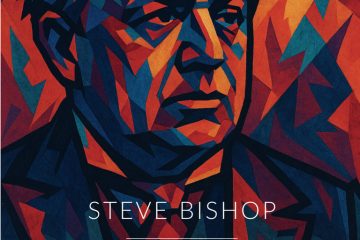How can we serve God outside the church sphere? Many Christians today are aware of the problem of dualism: the sacred/secular split. It’s easy to understand that preachers, pastors, evangelists and apologists are serving God but what about cobblers and French teachers?
William Tyndale (1494-1536) is famous for translating the Bible into English but few know how much he affirmed the calling of the humble cobbler. Indeed, one of the articles of heresy against Tyndale, the leading English Reformer, who was executed for heresy in 1536, was that he taught:
“There is no work better than another to please God; to pour water, to wash dishes, to be a souter (cobbler), or an apostle, all is one; to wash dishes and to preach is all one, as touching the deed, to please God.”
We can imagine Christian cobblers working together in a vibrant community making shoes, loving the leather and their customers by infusing the manufacture of shoes with Christ’s love and wisdom but isn’t the teaching of French or German completely neutral? Surely it has nothing to do with Christian faith. We need to think again.
Years ago when I lived in Bath I was chatting to Ruth in church after the service. I began to probe Ruth about her job as a French teacher. I asked her how her Christian faith impacted the way she taught her subject.
She looked at me with thinly disguised disdain. “It has nothing to do with my faith. I just teach French. Church is in the religious box and French is in the secular box.”
I thought I needed to challenge this popular but unbiblical dualism. We should not divide life into the secular bit and the sacred bit. Doesn’t everything belong to Christ the Lord?
“Have you ever thought about the hidden messages that are often being communicated in the way we teach French?”
Ruth looked at me as if I had just told her I had become a Zen Buddhist. I launched into my patter.
“In my view the dominant way of teaching Modern Foreign Languages (MFL) is caught up in an individualist and materialist story. It’s all about me and my consumption. It’s ‘I shop therefore I am’ or in Latin ‘Tesco ergo sum’.”
Ruth grimaced at my feeble Latin joke and began to look slightly desperate and forlorn. “Why are you saying this? French teaching has nothing to do with faith!”
“Just look at a typical French lesson, Ruth. Often the focus is upon self-governing individuals buying ice creams, making complaints about hotels and enquiring about where to go shopping. I call this the self-centred tourist worldview. “I want a lobster flavoured ice cream now.” “I want to make a complaint about the ugly curtains.” “I am very angry about the stale croissants.” “Why is the bath so big?” “Why must we queue outside with no air conditioning?”
Ruth relaxed slightly and murmured. “I think I see what you’re getting at Rocky. You are concerned about an entitlement mindset. Is that right?”
“Brainy boffins (e.g. Dr David I. Smith) have studied MFL textbooks and they are struck by how the dominant story of our western world, consumerism, is the hidden, pulsating theme. Textbooks often present people as egocentric and materialistic. They live as if there is no God and everything is just physical so shop till you drop and grab that bargain before Roger beats you to it.”
Ruth was now beginning to soften and her disdain was ebbing away. She was beginning to appreciate my cut-diamond insights into the aggressive nature of consumerism. I steamed ahead.
“Here’s a cute, little story to make my point. You’re on a coach in China, surrounded by jocular and flamboyant tourists. Suddenly there is a jolt, the coach stops suddenly and the Chinese driver looks irate. The attentive tourists notice that an elderly Chinese lady has been knocked over and is lying on the road. They exit the coach and begin to parlay with the distressed lady who is recovering from the shock. ‘Here’s my phrase book and let’s apologise to her’, urges Doris from Barnsley. They whip through the phrase book and they cannot find the Mandarin for – “We would like to apologise for this incident.” The entire phrase book is focused on self-centred tourists who crave constant consumerist activity and apologising to locals is just not part of this egocentric and myopic lifestyle.”
Ruth was now warming to my theme. “But that’s awful. Surely saying ‘I’m sorry’ is part of life. It should be if we are Christians.”
“I apologise unreservedly to you if this sounds bonkers but boffins have also discovered that the only mention of ‘religion’ in MFL textbooks are horoscopes.”
Ruth was shocked when I said this and remarked: “So these textbooks are presenting humans as either self-centred consumerists or pagan astrologers.”
I decided to be blunt.
“Oui, vous avez raison.” (French for Bang on the nail)
“So given all this, how can I serve Jesus as a French Teacher?”
“Well a simple thing you can do is to tell your students stories about people who are busy loving their neighbours rather than scheming their next trip to Homebase. Consider this story.”
“Neema Crafts is a faith-filled business that makes God smile.
It started in 2003 when a Christian woman Susie Hart taught three deaf men to turn elephant poo into paper in a Tanzanian village.
Neema now employs more than 100 deaf and disabled people who make handicrafts, cards, books and jewellery.
The business is flourishing and has transformed the lives of many people who used to be snubbed, shunned and ignored in the village of Iringa.
Neema Crafts aims to change negative attitudes towards people with disabilities in the local society.
There’s a great stigma attached to having a disability in Tanzania, and Neema Crafts provides dignity and hope for many people who previously relied on street begging or were hidden away at home.
The centre has eight craft workshop areas, a therapy unit for disabled children, an award winning cafe, a conference centre entirely staffed by deaf people and a welcoming guesthouse jointly run by the local Mother’s Union.”
“That’s an inspiring story, Rocky.”
“Ruth, French teachers like you can serve God by challenging the consumerist faith in all kinds of creative and fun ways. You can talk about Neema in French. Tell the stories of ordinary people who really love their neighbours and shun the militant shopping gods.”
“You could even do a lesson on William Tyndale and his admiration for godly cobblers!”
Ruth was now enjoying the conversation. However, she did mention with delightful irony that she had to dash off to Tesco to meet her husband, Brad!
She laughed and added cheekily: “Tesco ergo sum”.
- UCB Interview with Vicky Gibbens - January 28, 2026
- The Story of Fred Lemon who met Jesus and Two Angels in Prison - November 26, 2025
- The Inspiring Story of Abraham Kuyper (1837-1920) - October 22, 2025



4 Comments
Hugh · March 15, 2023 at 1:44 pm
I would like to be the first to say’ “What a load of Cobblers!” or indeed “Quel un chappeau de Cordonniers!”. Et aussi, Tesco n’est pas un mot Latine! But I do agree with William Tyndale. Why do we make everything about the church? And I write this as a priest. Mark is so right to highlight Dualism in my opinion it is the cancer of Christianity. It eats away at a creation-centred Christianity, where every calling is needed, and every person has a calling (indeed, more than one). Do we forget so easily that we follow a ‘Charpentier’? If only Joseph had been a Cordonnier! Sacre bleu! Cheers Mark!
Andrew David Lancaster · March 15, 2023 at 8:07 pm
I agree, I like the piece very much . I have been in conferences where I have wondered if the local church was more important than Jesus Himself. Thanks again Mark. Ce`st tres bien merci beaucoup.
kefah maranga · March 16, 2023 at 8:01 pm
Mark this is fascinating story. You are always making feel challenged to do more of Christ’s love through your stories. So insightful and eye opener. Blessings
Duncan · March 21, 2023 at 10:20 pm
Imagination, imagination, imagination. We can ask God to help us use our imaginations in every work place to express his kingdom.
Comments are closed.